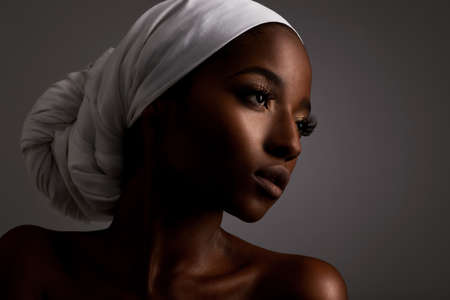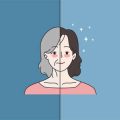1. Introduction: The Evolving British Beauty Landscape
Britain’s contemporary beauty landscape is a vibrant reflection of its multi-ethnic society, where diverse backgrounds and cultures are increasingly shaping mainstream ideals. Over the past decade, the visibility of British Muslims and ethnic minority celebrities has grown remarkably, challenging traditional notions of beauty and broadening public perceptions. This evolving scene is particularly evident in media, fashion, and the cosmetic industry, where representation now extends far beyond Eurocentric features. As more Muslim personalities and stars from South Asian, Black, Middle Eastern, and other backgrounds gain prominence, their influence encourages wider acceptance of varied skin tones, facial features, and modest styles. These shifts not only redefine what is considered beautiful but also highlight the importance of inclusivity and authenticity in British society. By embracing this diversity, the UK sets itself apart as a nation where beauty standards reflect its multicultural identity—making room for individual expression while celebrating collective heritage.
2. Representation Matters: High-Profile British Muslim and Ethnic Minority Celebrities
In recent years, the UK’s media and entertainment landscape has witnessed a significant rise in British Muslim and ethnic minority celebrities who confidently celebrate their backgrounds. These influential figures do more than simply occupy space on television screens or magazine covers—they redefine mainstream beauty standards by embracing features, fashion, and cultural elements that reflect their heritage.
Challenging Conventional Norms
Traditionally, British beauty ideals have often been shaped by Eurocentric standards. However, celebrities from diverse backgrounds are challenging these conventions by proudly displaying characteristics such as darker skin tones, natural hair textures, and modest fashion choices inspired by their cultures. This shift is helping to broaden what is considered beautiful in the UK today.
Notable Figures Leading Change
| Celebrity | Background | Contribution to Beauty Ideals |
|---|---|---|
| Maya Jama | Somali-Swedish-British | Highlights Afro-Caribbean features and openly discusses her heritage, inspiring young women of similar backgrounds. |
| Zayn Malik | British Pakistani | Embraces South Asian style influences and has spoken out about identity, resonating with multicultural youth. |
| Nadiya Hussain | Bangladeshi-British Muslim | Proudly wears her hijab on national television, normalising modest fashion and expanding public perceptions of beauty. |
| Alesha Dixon | Afro-Jamaican-British | Promotes diversity through her platforms and serves as a role model for mixed-heritage individuals. |
Impact on Mainstream Perceptions
The visibility of these celebrities not only allows young people from minority communities to see themselves represented but also encourages wider British society to appreciate a broader range of beauty ideals. As more personalities openly share their stories and traditions, conversations around cosmetic preferences become richer and more inclusive. Ultimately, this representation drives home the message that beauty in Britain is multifaceted—encompassing various shades, styles, and cultural influences—and that everyone deserves to feel seen and celebrated.
![]()
3. Challenging Stereotypes: Breaking Away from Eurocentric Ideals
For decades, the British beauty and cosmetic industry has been heavily influenced by Eurocentric ideals—standards that often prioritise lighter skin tones, sharp noses, and certain facial symmetries. However, British Muslims and ethnic minority celebrities are increasingly challenging these norms, both through their personal aesthetic choices and the public narratives they embrace.
Redefining Beauty Through Personal Style
Many prominent figures such as Maya Jama, Riz Ahmed, and Mahira Khan use their platforms to showcase features and styles that reflect their cultural heritage rather than conforming to traditional Western ideals. Whether it’s through bold fashion choices, embracing natural hair textures, or highlighting unique facial features, these celebrities set new standards for what is considered beautiful in the UK. Their influence encourages fans to celebrate individuality rather than striving for a homogenised look.
Representation in Media and Its Impact
The presence of ethnic minority celebrities in mainstream media plays a pivotal role in normalising diversity. When audiences see stars who look like them confidently wearing traditional clothing or opting for makeup that complements deeper skin tones, it sends a powerful message: beauty is multifaceted and not limited by ethnicity. This visibility helps dismantle long-standing stereotypes and fosters greater acceptance of different cosmetic ideals across British society.
Public Narratives: Sharing Authentic Experiences
Beyond visual representation, many celebrities openly discuss their experiences with identity, cultural expectations, and beauty standards. By sharing stories about overcoming colourism or navigating pressures to conform, they offer relatable perspectives that resonate with minority communities. These honest narratives empower others to embrace their own backgrounds and reject the notion that beauty is defined by Eurocentric criteria.
Through personal style, public advocacy, and authentic storytelling, British Muslim and ethnic minority celebrities are actively reshaping the country’s cosmetic landscape. Their efforts challenge outdated stereotypes, paving the way for a more inclusive understanding of beauty that honours diversity and individuality.
4. Influence on Cosmetic Trends and Aesthetic Procedures
The growing prominence of British Muslim and ethnic minority celebrities has significantly influenced the landscape of cosmetic trends and aesthetic procedures in the UK. Their unique preferences and beauty standards have shifted public perception, challenging conventional Western ideals and fostering a more inclusive environment within the cosmetic industry. As these celebrities openly discuss their skincare routines, preferred treatments, and cultural considerations, they inspire fans and wider communities to embrace diverse approaches to beauty.
Celebrities as Catalysts for Change
British Muslim and ethnic minority celebrities often prioritise natural enhancements and subtle results that align with their cultural values. For instance, many favour non-invasive procedures such as dermal fillers or laser treatments over surgical interventions, reflecting a broader trend towards less drastic cosmetic changes. This has contributed to a rise in demand for services that respect religious practices—such as halal-certified skincare or female-only clinics—ensuring comfort and cultural appropriateness.
Popular Cosmetic Treatments Influenced by Celebrities
| Treatment Type | Celebrity Influence | Demand Trend |
|---|---|---|
| Halal Skincare Products | Promoted by influencers seeking cruelty-free and alcohol-free options | Increasing among Muslim consumers |
| Non-Invasive Facial Contouring | Preferred by celebrities for natural results | Significant growth in clinics across major UK cities |
| Pigmentation and Scar Treatments | Highlighted by personalities discussing melanin-rich skin needs | More inclusive offerings from practitioners |
The Rise of Culturally Sensitive Aesthetics
A key impact of these celebrity influences is the heightened awareness around culturally sensitive aesthetics. Clinics are now training staff in cross-cultural communication, updating treatment protocols to accommodate modesty requirements, and expanding product lines to include shades suitable for all skin tones. This shift not only supports the personal choices of British Muslims and ethnic minorities but also sets new industry standards for inclusivity. As a result, both patients and practitioners benefit from an environment where diversity is celebrated rather than overlooked.
5. The Role of Social Media and Community Influence
In recent years, social media has emerged as a transformative force in shaping the perception of beauty standards among British Muslims and ethnic minority communities. Platforms such as Instagram, TikTok, and YouTube have become digital stages where diverse voices are not only heard but celebrated. These platforms empower British Muslims and ethnic minority celebrities to showcase their unique beauty ideals, directly challenging the traditional Eurocentric standards that have long dominated the cosmetic industry.
The Power of Digital Storytelling
Digital platforms give individuals the ability to curate their personal narratives, share real-time experiences with cosmetic procedures, and highlight aspects of their heritage that influence their aesthetic choices. Through vlogs, tutorials, and open discussions, these influencers demystify procedures such as rhinoplasty or skin treatments, offering honest accounts tailored to cultural sensitivities. This transparency resonates with followers from similar backgrounds who may previously have felt excluded from mainstream beauty conversations.
Community-Driven Representation
Social media also fosters community-driven representation by enabling the creation of online support networks. Hashtags like #HalalBeauty or #DesiGlowUp bring together individuals who share common values and cosmetic aspirations. As British Muslims and ethnic minorities connect over shared experiences—be it finding clinics that respect religious practices or celebrating features unique to their ethnicity—they collectively challenge stereotypes and broaden the definition of what is considered beautiful in British society.
Influencing Mainstream Brands
This growing digital influence compels mainstream cosmetic brands and practitioners to rethink their marketing strategies and service offerings. Many now collaborate with British Muslim and ethnic minority celebrities for product launches or awareness campaigns, ensuring authenticity and cultural relevance. By amplifying diverse beauty ideals online, these communities not only reshape industry trends but also encourage greater inclusivity within the broader UK beauty landscape.
Ultimately, social media acts as both a mirror and a megaphone: reflecting the rich diversity of modern Britain while empowering its people to define beauty on their own terms.
6. Conclusion: Towards an Inclusive Future in British Beauty
The evolving influence of British Muslims and ethnic minority celebrities has fundamentally reshaped the cosmetic ideals celebrated across the UK. Their visibility and unapologetic embrace of heritage have inspired a broader, more inclusive narrative around beauty that challenges traditional standards and embraces diversity at every level. As these public figures champion their unique features, cultural backgrounds, and personal stories, they empower others to do the same—encouraging a generation to see value and beauty in difference.
This ongoing journey is not without its challenges, yet it signals a positive shift towards acceptance and representation within Britain’s beauty industry. Cosmetic brands are increasingly responding by expanding their product ranges, featuring diverse ambassadors, and addressing the needs of communities previously overlooked. The enduring impact is seen not only in advertising or on social media but in everyday conversations about self-acceptance and identity.
Looking ahead, the continued celebration of diversity promises a richer, more authentic cosmetic landscape—one where everyone can find inspiration and feel recognised. As British society becomes ever more multicultural, the beauty industry must remain committed to fostering inclusivity and championing all forms of beauty. This collective progress paves the way for future generations to grow up in a Britain where everyone’s individuality is celebrated, both inside and out.


